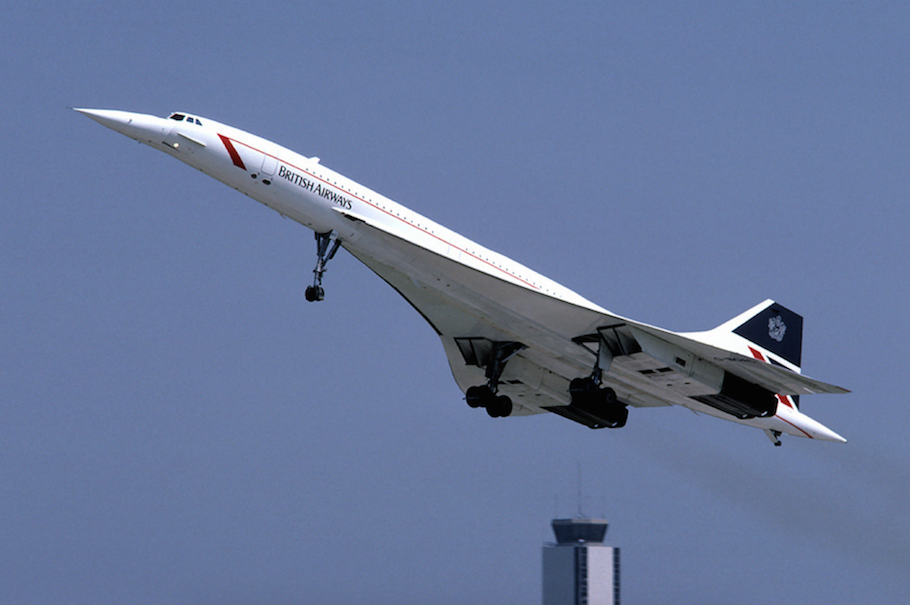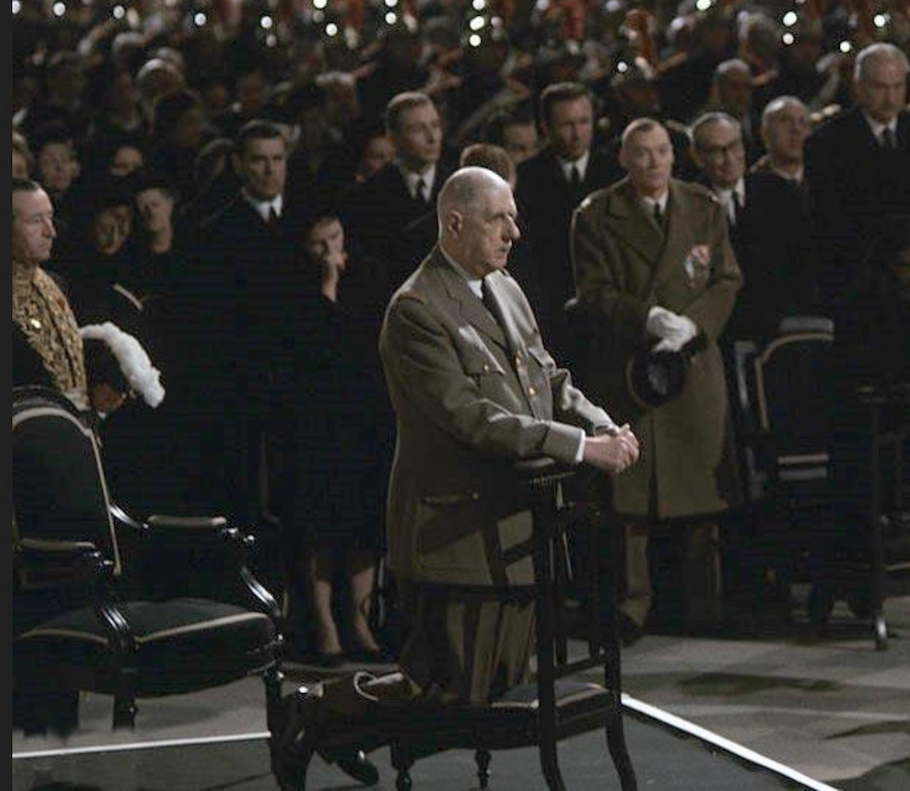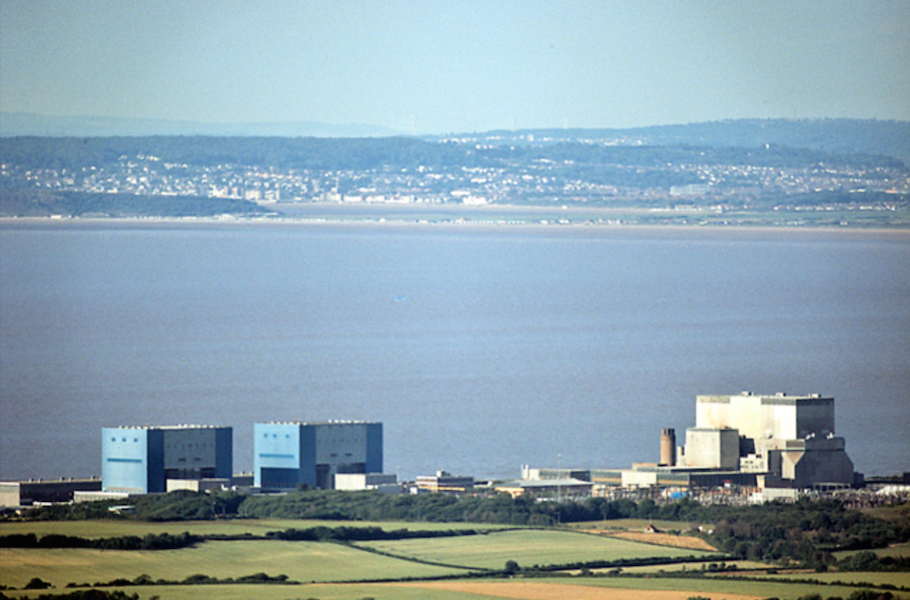From Concorde to Hinkley: The EU and Britain’s trade and investment policy

Concorde, by Eduard Marmet.
It’s déjà vu all over again.
This malapropism is usually attributed to Yogi Berra, a famous baseball player in the early 1960s. It also seems to be appropriate now when thinking about international economic policy in the UK. I could have written ‘analysing’ rather than ‘thinking’ but that would suggest that current policy is the outcome of a serious discussion of options and estimates of the costs and benefits of alternative possibilities. Unfortunately policy makers seem not to have any understanding of the history of Britain’s recent relations with Europe and seem intent on unravelling what has been put together in recent decades irrespective of the impact on both the UK and our partners in Europe. The following will hopefully throw some light on the how and why of where we are presently but is in no sense intended to be other than a personal account of past events that ought to have some weight in current policy development.
I joined the Treasury in the mid 1960s during Harold Wilson’s first government and had a remit that focused on international economic policy. At that time the Government Economic Service was truly professional and was headed by professor Alec Cairncross who was highly experienced in government and very insightful about economic policy. Other economists on the staff included Wynne Godley who subsequently became professor at Cambridge and his close collaborator James Shepherd. There was a depth to economic analysis and policy discussion across Whitehall that has subsequently been eroded in part through the appointment of special advisors who are essentially political aides rather than economists. This weakening of the policy making process is unfortunately only too evident and in part explains the cumulative failures of recent years – not least the deadweight-losses and distributional costs of Osborne’s austerity policies.
The Labour government had a majority of 4 when it took office in 1964 and had inherited a balance of payments in significant deficit. The previous Tory Chancellor (Maudling) had been advised to reduce domestic demand in the 1964 budget but had chosen to ignore this advice and instead cut taxes in advance of the autumn election. But preparatory work went ahead in the Treasury so as to have a range of measures in place to deal with the expected sterling crisis which would inevitably occur given the forecast balance of payments deficit. Wilson chose not to devalue the exchange rate and chose instead a temporary import charge which reduced over time the level of imports. But the underlying position of an overvalued exchange rate continued until the UK was forced to devalue in late 1967 under conditions that were extremely costly for the Treasury and the country.
This background is relevant in that by the 1960s the UK had reached the end of the line in respect of international trading relationships. The Commonwealth which in the 1930s had sustained the British economy had ceased to provide growing and dynamic markets for UK exports in the post war period and indeed had to a degree held back the industrial regeneration that was needed. Thus Tibor Barna demonstrated in an influential paper that dependence on slow growing Commonwealth markets was part of the problem and that shifting exports to faster growing markets would generate more competitive production. The UK had grown slowly during the 1950s in part because of the constraints of the balance of payments (a stop/go economic cycle) and had lagged behind our European competitors. New trading relationships were thus seen as essential if the UK was to break free of the constraints of the balance of payments but there was disagreement about what to do.
On the one hand there were those who wanted to maintain the Commonwealth relationship of essentially protected trade dependent on a set of defence and other preferred relations. This despite the fact that such markets did not display the patterns of demand that were essential if the UK was to develop new and growing industrial capacity. Hence the dispute that went on for ever within the Tory party about sustaining the Commonwealth ties despite the fact that the latter were themselves developing new markets for their output/exports. As we shall see below some of these arguments reverberate today given the belief of some of those supporting Brexit that there exist alternative markets which could easily replace access to the EU single market. The question becomes whether such markets exist and whether the UK would be competitive in the face of for example Chinese, Indian, and Vietnamese products.
In 1957 the six European countries signed the Treaty of Rome establishing the European Economic Community. At that time the UK would have been welcomed as a member but chose not to join and instead formed a rival bloc of seven small countries (EFTA – the European Free Trade Area). It was hoped that EFTA would provide some of the trade growth that UK so desperately sought without the various obligations involved in the EEC whilst allowing the UK to sustain the Commonwealth relationship. EFTA was never a realistic alternative to the EEC and this soon became apparent even to the Tory party that was in office throughout the 1950s and until 1964 when Wilson won the election. Macmillan had by the early 1960s decided that Britain should join the EEC but faced problems within his own party and also from the French. De Gaulle had decided that the UK was simply a ‘trojan horse’ for the USA and after the Nassau agreement on nuclear weapons essentially an American colony.

Charles de Gaulle, by fr.politique.wikia.com/
By the mid 1960s, the UK had run out of options. The Commonwealth couldn’t provide the market growth that British industry needed; EFTA was too small a market to generate the industrial economies of scale needed if the UK was to compete with the Germans, and the French were not prepared to let the UK join the EEC. Wilson when he took office realised that the future of the UK lay with the EEC and he took up the UK application to join in the later 1960s but continued to be rebuffed by the French. Internal economic assessments in Whitehall showed quite clearly the costs and benefits of membership of the EEC with overwhelming support for the gains from membership. Opponents of membership of the EEC within the Cabinet still persisted in supporting the Commonwealth option and some Labour ministers even proposed setting up a free trade arrangement with the USA. As we shall see below the UK tried to address the concerns of the French and these were to a degree easier after the changes in UK defence policies when Wilson abandoned its East of Suez commitments.
But it was left to Edward Heath when he took office in 1970 to actually engage with our European neighbours and he signed the Treaty of Accession in 1973. So finally the UK, having tried all of the various options, had concluded that the EEC was the best and it signed on the bottom line. Of course one of the consequences of joining the club was that the table had been set in the interests of the original members, and the UK had more or less no option but to accept arrangements some of which were definitely not in the British interest such as the Common Agricultural Policy. Herein lies part of the problem with the EEC since its structure wasn’t ever set in the interests of the UK but of the founding members. Mrs Thatcher managed to get the famous fiscal rebate to reflect that fact that the UK was contributing excessively to the EU budget, and has increasingly sought opt-outs from policies that supposedly do not meet British needs. This increasingly semi-detached relationship has not endeared the UK to its EU partners and one would not expect them to be falling over to please Brexiteers in any negotiations as and when these begin in 2017.
A digression – or is it: Concorde
There was great secrecy surrounding the development of Concorde and although public funds were used to support the project from the early 1950s it was not until December 1962 that parliament was allowed to have a debate. Attempts had been made to try and get the USA to share the costs of development but they turned down the opportunity having a totally different view about market opportunities for aviation growth. Proponents of supersonic aircraft made sure that the project was kept as far as possible away from Treasury oversight even though development costs had already vastly exceeded the estimates originally produced. In the end the development costs were no less than 15 times the original estimates.
Tory governments during the 1950s were keen to take forward Concorde in part so as to support the British aviation industry which was reeling from the failure of the Comet aircraft. In part the problem was an engineering one – how to design a plane which could carry enough paying passengers and not make operational losses in the process. This was never resolved and the plane often flew with only half of the seats occupied. There were also the severe environmental issues – of noise and pollution – which were never solved and exercised the minds of many of those affected by the plane in urban settings. While back of the envelope projections were made in the Ministry of Aviation of a market for the aircraft of between 150 and 500 planes only 16 were ever produced. These were acquired by British Airways and Air France which were both national carriers at that time either at discounted prices or for free. Both airlines were also given guarantees by their respective governments against operational losses.
The Macmillan government having been rebuffed by the Americans turned to the French and discussions started about a joint venture in 1959 and finally in 1962 an agreement was reached on funding and development of Concorde. What is remarkable about this agreement is that no market assessment was ever made and no one ever approached the main airlines to ask whether they would buy a supersonic aircraft. Furthermore it was agreed that if either partner pulled out of the project then they would have to fully compensate financially all of the costs incurred by the other country.
Why was the British Government so committed to Concorde? Well the answer to a degree relates to the discussion above that UK had by the early 1960s decided that its trading future lay with the EEC. The joint development of Concorde with the French as a full partner was supposed to demonstrate two things. Firstly, that UK would bring to the EEC a viable and high tech aviation industry to rival the dominance of the USA, and secondly that it was now committed to a European market as represented by the Economic Community. Macmillan was not of course committed to the vision of Europe of Monnet and Schuman who saw economic arrangements as a stepping stone to broader political integration. Rather, Macmillan’s decision in 1962 to apply to join was essentially economic and herein in part lies the genesis of the problem in the longer term.
Unfortunately for Macmillan the French were not convinced that the UK was ready to join the EEC and De Gaulle rejected the application in January 1963. When the Wilson Government came into office in the autumn of 1964 it looked at the agreement with France and at the costs of developing Concorde and tried to cancel the project. They were appalled at the fact that no commercial assessment had been made of the market for the plane and that cancellation by either partner would lead to compensating the other for all of the costs incurred. Labour decided it was simply easier to continue with the project rather than cancel it. Furthermore, as noted above, Wilson became convinced that joining the EEC was the only viable strategy so he took up the application that was still on the table and engaged the French government in further discussions. Concorde was part of the background to the discussions but in itself proved insufficient to get the French to change their opposition and Pompidou again rejected membership.
The best and easiest accessible analysis of the tangled web of events relating to the development of Concorde is to be found in the Atlantic Monthly, Jan 1977 (Supersonic Bust by Robert Gillmann). It’s a sorry story and an example of the far too many appallingly bad public investment decisions made by British governments over the past 50 years. The project was hugely expensive – estimated by David Henderson who was chief economist at one stage at the Ministry of Aviation at £4.26billion in 1975 prices. The Concorde project furthermore tied up the scarce engineering and design capacity of the British aviation industry for decades at a time when the global market was expanding rapidly. Allowing this hugely profitable market to be captured by the Americans who had rightly seen no future in supersonic flight.
And then there is Hinkley Point C

Hinkley Point nuclear power stations, by Richard Baker.
The parallels between Concorde and the decision made in September by the May government to go ahead with the building of the first nuclear power station for many years is truly amazing. It is as if the British have a preference for investments that are white elephants, and are determined to go ahead with immensely expensive projects despite the evidence that they are not the best solution to national needs. The French, Chinese and British governments have agreed jointly on the building of Hinkley Point C at an estimated cost of £18billion. This is despite the fact that the technology is untried and that the 2 plants presently under construction in Finland and France are years behind schedule and well over budget. The Finnish plant was due to come on stream in 2009 and is now 5.2 billion euros over budget while the French plant is 6 years late.
As with Concorde, the government has chosen a technology that is risky when other alternatives are available. The government has itself confirmed a report from the National Audit Office (July 2016) that by the mid 2020s that large scale solar and onshore wind power would generate electricity more cheaply than that produced by Hinkley Point. Indeed, the government estimates are that sustainable sources of energy would be half the price of nuclear. Furthermore there would not be any need for the price guarantees given to the Chinese and French developers in the contract (the latter are expected to add very significantly to the electricity bills of consumers over several decades and have been estimated by the National Audit Office as up to £30billion). There also remains the complex issue of responsibility for decommissioning the nuclear plant and who bears the cost of this huge and unpredictable expenditure. Notionally this will fall on the developers but the contracted costs look as if they will be far below the actual cost and the huge excess will fall on UK taxpayers.
So why would the British government choose nuclear over the available alternatives? The technology is untried, the costs of construction are inevitably going to be billions more than estimated and the project delayed by many years, and the costs of operation greater than competing sustainable energy alternatives. There will be ongoing subsidies to operators and the clean-up costs impossible to predict but inevitably huge (the present estimate is up to £7.2 billion but they will be many times that figure). There are so many elements here that parallel the case of Concorde and in the final analysis the costs will again fall on the UK tax payer.
Where are the benefits? Well these seem to lie in the nebulous and unlikely possibility of access to the Chinese market for British exports, and an ability to draw down Chinese direct and financial investment in the UK. In the case of exports of goods and services to the Chinese these are already possible under WTO rules so what would be gained by the Hinckley contract? Similarly in the case of Chinese investment where the Chinese will make rational decisions on where to put their savings and this will depend on the usual assessments of financial return and profitability. Of course the investment in Hinkley Point may generate further opportunities for Chinese nuclear contractors in the UK but this is highly uncertain given that nuclear will be a high cost option relative to other sustainable energy.
In large part the British are going ahead with Hinkley because of the market disruption caused by Brexit. The loss of privileged access to the EU market for goods and services will mean finding alternative markets – and the Chinese market is huge and is growing. But as noted above, for most products, the Chinese are a much lower cost producer than the UK. So where would the market opportunities lie? The British current account is already in large deficit and has been for many years and has been financed by capital inflows – some of it from China. The hope presumably in government is that it will continue to be possible to draw-down Chinese savings to finance the ongoing deficit – a deficit that will probably widen after Brexit. But this is a highly uncertain strategy and one that no sensible government would find attractive given the political structure of China and instability in Chinese/Western relations.
Where to now?
Membership of the EEC and subsequently the EU has been immensely beneficial to the UK. There have been large and ongoing economic benefits as was predicted in the early assessments undertaken in Whitehall in the 1960s and subsequently confirmed by innumerable economists. The recent Treasury assessment of the cost of Brexit of a reduction in British GDP of between 5.4% and 9.5% looks only too realistic, and represents an estimate of the gains to GDP that the UK has had from membership of the Community.
There have, of course, been non-quantifiable benefits which have been just as important not least the opportunity to draw on highly skilled and professional labour from across the EU over many years. Not least of the benefits has been an awareness over time that the future of the UK lies in cultural and social integration with our partners in Europe – recognised most fully by the youth of Britain who overwhelmingly voted to remain in the EU in the June referendum.
There is no realistic alternative to the EU available to the UK out there – a world of supposed ‘free trade’ which has been always a fiction in the minds of a few classical economists and naive Tory politicians. As we have seen above in the brief history of our accession to the EEC and subsequently the EU there is no alternative, as even Mrs Thatcher finally realised as she signed the Treaty of Maastricht.
What we now have is a world of managed trade where membership of a large trading bloc such as the EU is essential for access to global markets on reasonably fair terms. There is no way the UK could freely compete with the low wage economies of East and South Asia in most manufacturing products. Rather the future of the UK has to lie with products and services that embody high levels of education and technology. These are precisely the capacities that are developed and sustained by ongoing membership of the EU.
Brexit, if it ever happens will cause deep economic and social costs and is totally avoidable. It would be yet another example of policy decisions of which there have been far too many examples in recent British history and which have been disastrous in their impact on the population. If Brexit is persisted with by the present government, not only will it reduce GDP, cause high and unnecessary unemployment, and social distress but it will probably also lead to the breakup of the UK.
Why would any government choose to go down this path?





